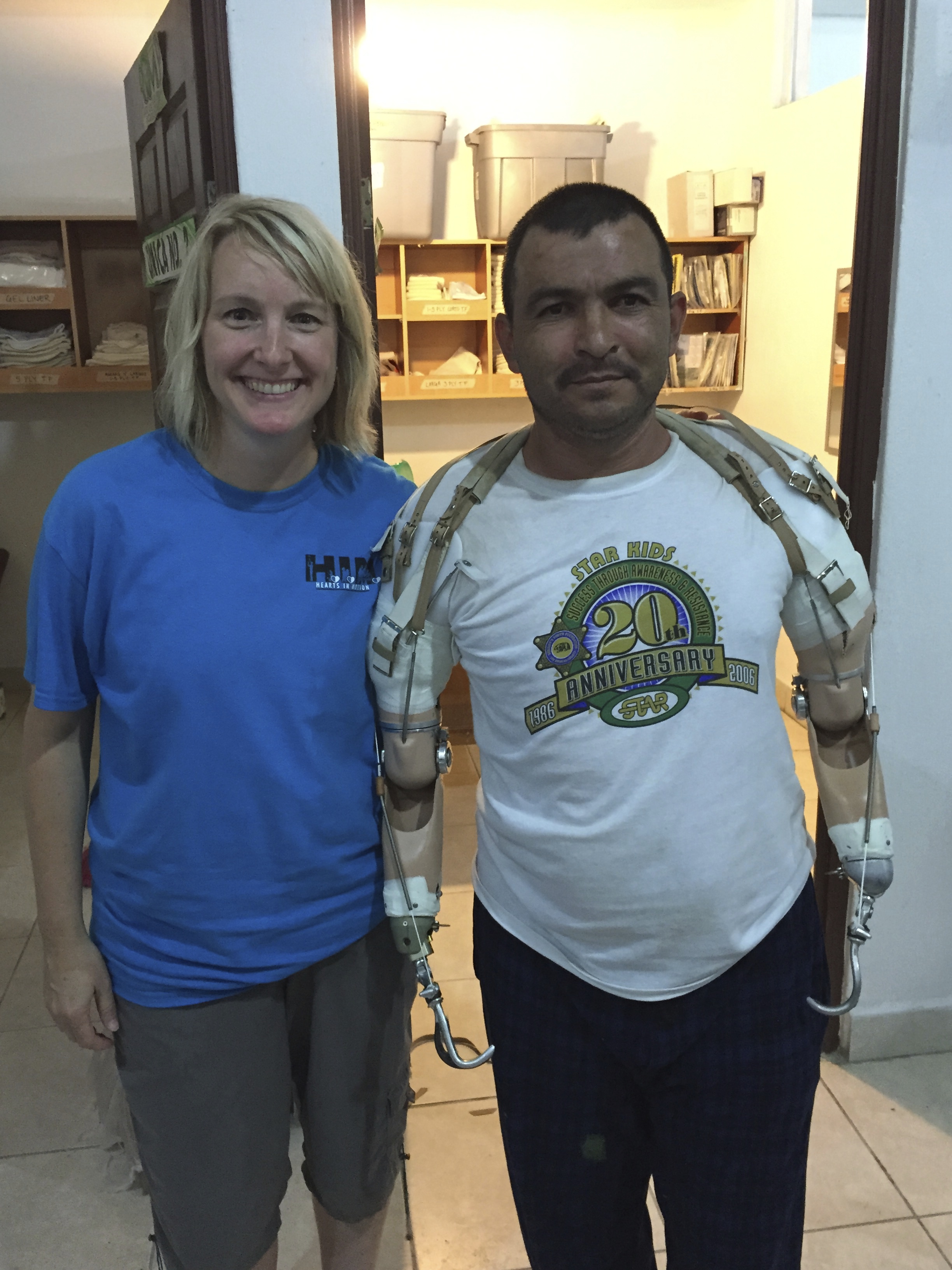Body
In addition to being Limb Loss Awareness Month, April is also Occupational Therapy Month!
Following a neurological injury such as stroke or spinal cord injury, many people experience reduced strength and function in the arms and hands. These symptoms often make it more difficult to perform activities of daily living — from buttoning a shirt to cooking a meal. People with limb loss also face similar difficulties.
Occupational therapists are clinicians who help patients practice daily tasks so they can live more independently and maintain their health. For instance, during a therapy session, occupational therapists may help a patient recover hand strength by practicing specific exercises and performing other types of therapy. They may also teach patients how to use adaptive technologies, such as a device to help button a shirt or put on a sock.
At the Center for Bionic Medicine (CBM), we’re very fortunate to have on staff Kristi Turner, MHS, OTR/L, who is our research occupational therapist. Kristi works with our patients to assess our prosthetic technologies. She also assists in the hospital’s inpatient units and outpatient clinic, specializing in the treatment of upper-limb loss and burn injury.

Outside of her work with CBM, Kristi has volunteered for several years with the Range of Motion Project (ROMP), a non-profit that operates a full-time clinic in Zacapa, Guatemala and provides prosthetic care to patients in other low-income countries. With ROMP, Kristi has treated patients who visit the group’s main clinic in Zacapa and in the country’s remote villages. Some of the patients have waited months or even years to receive their first prosthetic limb.
On one of her trips in 2014, she traveled with a group to villages on the outskirts of Zacapa. When she looked out the window, she could see men and women in their 70s and 80s harvesting fruit in fields as the afternoon sun grew hotter. Her group stopped in a nearby village to provide on-site clinical care. She adjusted a man’s body-powered split-hook prosthesis so he could grip items with more force; soon after, he proudly showed her how he used his prosthetic hand to load his gun for his job as a security officer. Another patient – a young woman with two children – had lost her arm in a violent domestic dispute. Kristi taught the woman how to use her prosthesis to perform basic tasks around her house.
“I think they have this mentality of, ‘I’ve got to do this,’” she says. “So many will say, ‘I’m so blessed to have this opportunity [to receive a prosthesis.]’ It’s sad and shocking at the same time because it’s like, ‘You should have this opportunity; everyone should have this opportunity.”
—Sheila Burt
Mentioned Profile
